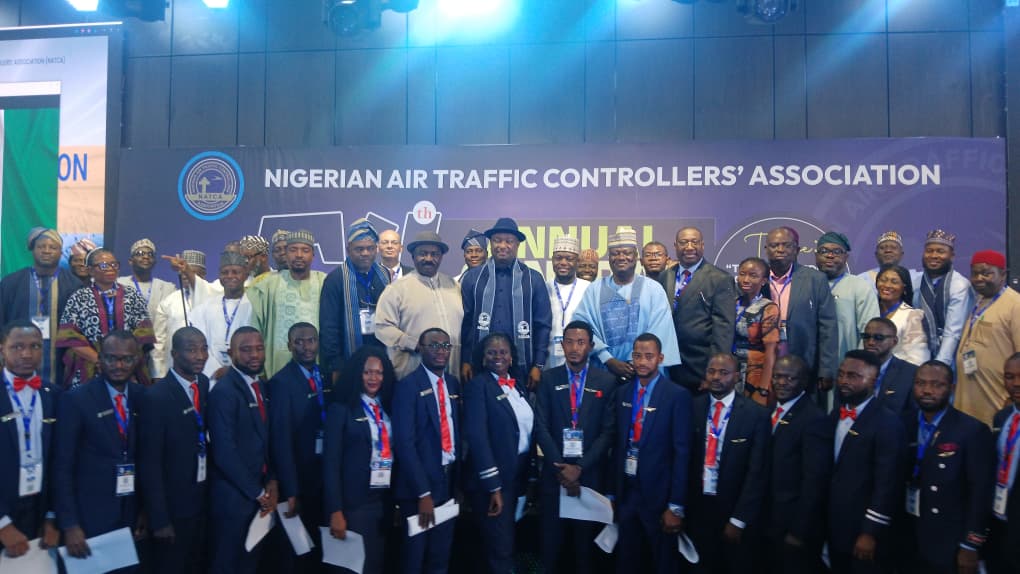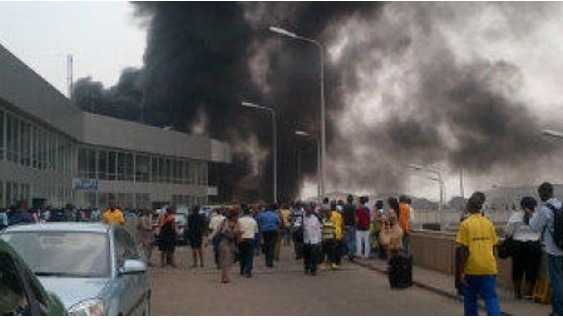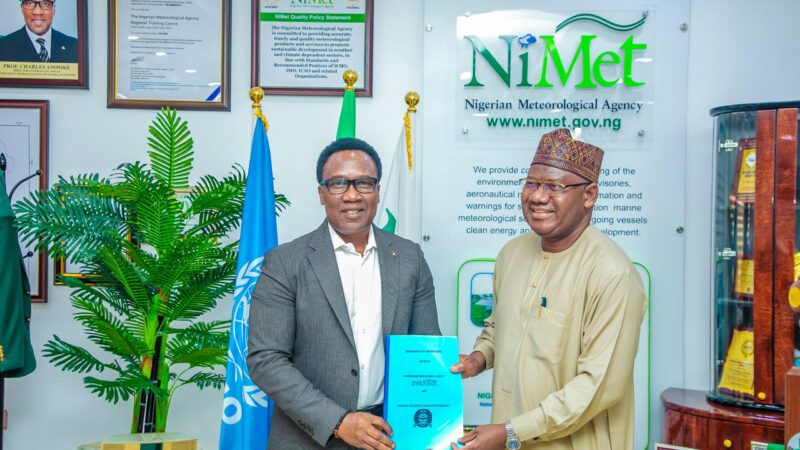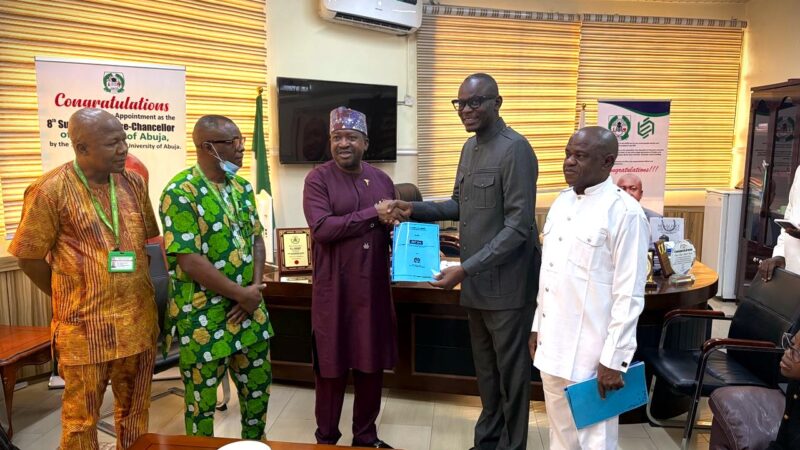NAMA Boss Champions ‘Human Edge’ Revolution at NATCA AGM, Urges Government to Waive Revenue Deductions for Safer Skies

The Managing Director and Chief Executive of the Nigerian Airspace Management Agency (NAMA), Engr. Ahmed Umar Farouk, has reaffirmed the Agency’s steadfast commitment to human capital development and infrastructural transformation in Nigeria’s aviation sector.
He made this declaration while addressing delegates at the 54th Annual General Meeting of the Nigerian Air Traffic Controllers’ Association (NATCA), held from 21st to 23rd October 2025 at the Nigerian Air Force Conference Centre, Abuja.
Speaking on the conference theme, “The Human Edge: Capacity Building in the Next Generation Air Traffic Management,” Farouk commended NATCA’s leadership for its forward-thinking choice, describing it as “timely and absolutely fundamental to the future of Nigerian aviation.”
He emphasised that, despite rapid technological advancement, the air traffic controller remains the most critical component of aviation safety and efficiency.
Farouk announced that NAMA has embarked on what he termed “the most ambitious infrastructural revolution in its history.” Under his leadership, the Agency has renovated and modernised control towers at 11 critical stations, including Abuja, Kano, and Port Harcourt.
Administrative and technical buildings across the country – from the Lagos headquarters to regional stations in Bauchi, Sokoto, and Benin – have also undergone complete overhauls.
To enhance operational security and reliability, he noted that perimeter fencing has been erected at VOR and TRACON sites nationwide.
The Agency has also deployed hundreds of new generators, installed solar hybrid systems, and fitted advanced Automatic Mains Failure panels and Uninterrupted Power Supply (UPS) units. In addition, new VHF radios, ILS/DME systems, and operational vehicles have been procured to boost technical efficiency.
“These projects represent capital investments running into tens of billions of Naira,” Farouk stated, adding that the improvements signify NAMA’s commitment to providing air traffic controllers with “world-class infrastructure to deliver world-class safety.”

Highlighting human resource development as the core of NAMA’s strategic agenda, Farouk declared 2025 as “The Year of Capacity Building.” He revealed that the Agency trained 230 senior managers overseas this year – including 110 air traffic controllers – the largest number in NAMA’s history.
Domestically, almost 90 percent of operational, technical, contract, and other essential staff received training through various workshops and courses, marking the highest training participation since NAMA’s establishment 25 years ago. This intensive programme, he said, was backed by a 78 percent increase in the Agency’s training budget.
“This is not just a conference theme – it is our operational philosophy,” Farouk said. “We have put our money where our mouth is, ensuring that the ‘Human Edge’ remains sharpened through continuous learning and global exposure.”
Addressing staff welfare, the NAMA Managing Director announced that the Agency is finalising the implementation of new Conditions of Service (COS) as soon as it is approved by the National Salaries and Wages Commission. The revised COS, he explained, will significantly improve staff remuneration, enhance motivation, and strengthen productivity across all units.
Farouk, however, sounded a note of caution regarding the financial constraints facing the Agency. He lamented that statutory deductions of between 30 and 50 percent from NAMA’s internally generated revenue have hindered the pace of facility modernisation and maintenance required to sustain air safety.

In a direct appeal to the Federal Government, he called for a waiver of these deductions to allow NAMA to reinvest its earnings in critical infrastructure, advanced technologies, and human capital development.
“Such a gesture would be a game-changer for Nigerian aviation safety,” he said. “This is not merely an appeal for NAMA — it is an investment in the safety and efficiency of our entire national airspace.”
Farouk reaffirmed NAMA’s dedication to collaboration with NATCA and other stakeholders in shaping the future of airspace management. He praised Nigerian air traffic controllers for their professionalism and devotion to safety, describing them as “the true custodians of our skies.”
He also expressed gratitude to the Minister of Aviation and Aerospace Development, Barrister Festus Keyamo, SAN, and the Permanent Secretary, Dr Ibrahim Abubakar Kana, MNI, for their visionary leadership and continued support, which he said had enabled the Agency’s recent progress.
“As you deliberate and draft your communiqué, know that NAMA stands ready to work hand-in-hand with you,” he concluded. “We will continue to invest in your growth, your welfare, and your future.”
The AGM brought together aviation stakeholders, including government officials, industry executives, and representatives of international air traffic control associations, who lauded NAMA’s strides in strengthening Nigeria’s aviation infrastructure and workforce development.







